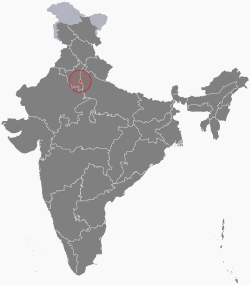Elections in Delhi, the National Capital Territory of India are conducted in accordance with the Constitution of India. The Assembly of Delhi creates laws regarding the conduct of local body elections unilaterally while any changes by the state legislature to the conduct of state level elections needs to be approved by the Parliament of India. In addition, the state legislature may be dismissed by the Parliament according to Article 356 of the Indian Constitution and President's rule may be imposed.
Contents
- Main political parties
- Lok Sabha elections
- Vidhan Sabha elections
- Metropolitan Council elections
- Municipal Corporation elections
- References
- External links
